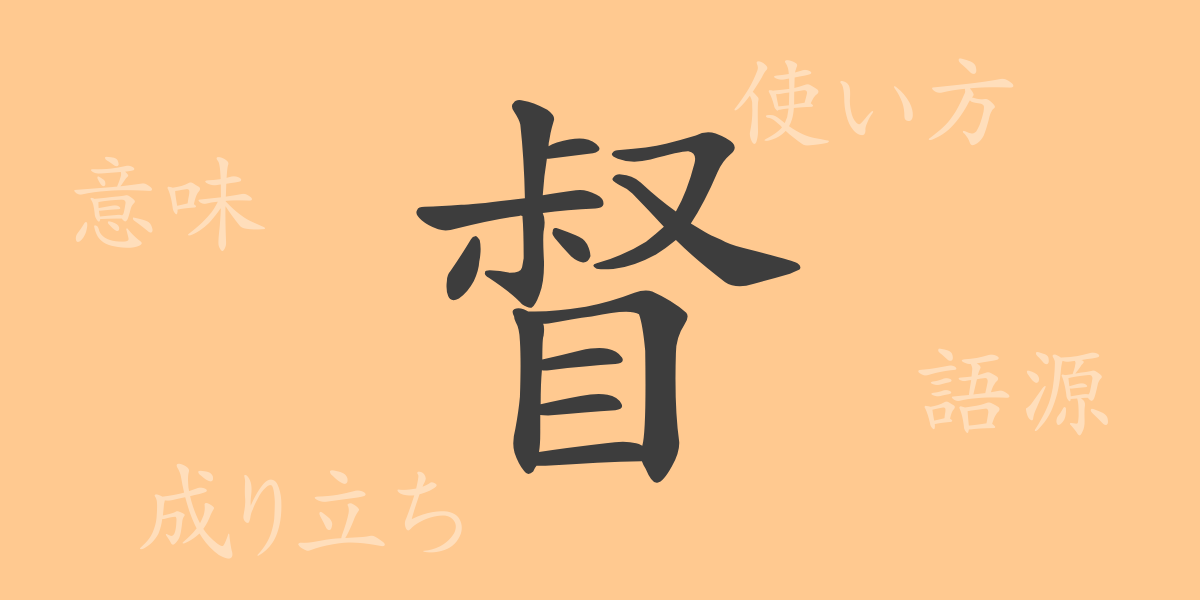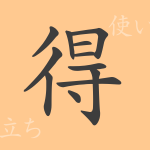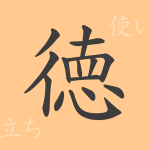The beauty of the Japanese language lies in its complexity and profound meanings. One such common Kanji, ‘督 (とく)’, is no exception. This article explores the rich history, meanings, and usages of ‘督’, offering insights into the culture and language of Japan. For those interested in Japanese culture and language, the world of ‘督’ promises a journey of learning and discovery.
Origins of ‘督 (とく)’
The Kanji ‘督’ originates from ancient China, tracing back thousands of years. Initially derived from the pictograph of an ‘eye’, symbolizing oversight, it combines ‘厂’ at the top, representing a cliff or a high place, and ‘目 (め)’, meaning eye, at the bottom. This symbolizes overseeing from a high place, associated with the concepts of supervision and monitoring.
Meaning and Usage of ‘督 (とく)’
In modern Japanese, ‘督’ primarily means to supervise or manage. It is commonly used in titles within public institutions and companies, such as ‘supervisor’ or ‘director’, typically conveying the idea of overseeing and guiding something in the right direction.
Readings, Stroke Count, and Radical of ‘督 (とく)’
‘督’ is a crucial Kanji within the Japanese language, and understanding its readings and structure leads to a deeper understanding of the language.
- Readings: On’yomi ‘トク’, no Kun’yomi readings.
- Stroke Count: A total of 16 strokes.
- Radical: The radical is ‘目 (めへん)’, relating to the eye.
Phrases, Idioms, and Proverbs Using ‘督 (とく)’
The Kanji ‘督’ is used in numerous idioms and phrases, enriching Japanese expression. Some examples include:
- 監督 (かんとく) – A supervisor or director, such as a sports team coach or a film director.
- 督促 (とくそく) – To demand or urge, used when prompting for the repayment of loans or fulfillment of obligations.
- 督戦 (とくせん) – Supervising and commanding troops in battle.
- 督励 (とくれい) – To encourage or motivate, especially used by a superior to inspire subordinates.
Conclusion on ‘督 (とく)’
Each Kanji has its own history and meaning, and ‘督’ tells many stories through its evolution over time. As a symbol of management and supervision, this Kanji holds a significant place in Japanese language and is essential for understanding the language through cultural contexts. May this article deepen your understanding of ‘督’, and help rediscover the allure of the Japanese language.

























